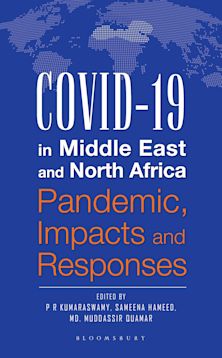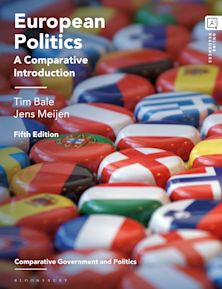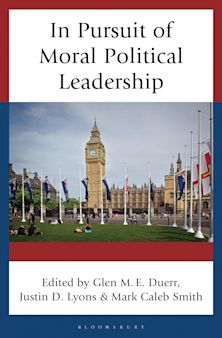- Home
- ACADEMIC
- Politics & International Relations
- Comparative Politics
- Europe and Its Boundaries
Europe and Its Boundaries
Words and Worlds, Within and Beyond
Andrew Davison (Anthology Editor) , Himadeep Muppidi (Anthology Editor) , Michael Aronna (Contributor) , Ross Benjamin (Contributor) , Andrew Busch (Contributor) , Heesok Chang (Contributor) , Raymond Duvall (Contributor) , Ayten Gündogdu (Contributor) , Katherine Hite (Contributor) , Mark N. Hoffman (Contributor) , Freya Irani (Contributor) , Sibel Irzik (Contributor) , Farzana Khubchandani (Contributor) , Dror Ladin (Contributor) , Kartik Raj (Contributor) , Peter Stillman (Contributor)
Europe and Its Boundaries
Words and Worlds, Within and Beyond
Andrew Davison (Anthology Editor) , Himadeep Muppidi (Anthology Editor) , Michael Aronna (Contributor) , Ross Benjamin (Contributor) , Andrew Busch (Contributor) , Heesok Chang (Contributor) , Raymond Duvall (Contributor) , Ayten Gündogdu (Contributor) , Katherine Hite (Contributor) , Mark N. Hoffman (Contributor) , Freya Irani (Contributor) , Sibel Irzik (Contributor) , Farzana Khubchandani (Contributor) , Dror Ladin (Contributor) , Kartik Raj (Contributor) , Peter Stillman (Contributor)
This product is usually dispatched within 1 week
- Delivery and returns info
-
Free CA delivery on orders $40 or over
You must sign in to add this item to your wishlist. Please sign in or create an account
Description
Is it possible to rearticulate the relationship between Europe and its others in non-colonizing ways? Europe and Its Boundaries reflects upon this question, first by exploring several philosophical approaches to Europe's relation to non-Europe, then by examining that relationship in specific intellectual and material contexts of European domination. The philosophical approaches are explored through the works of G. W. F. Hegel, Emmanuel Levinas, Jacques Derrida, and Hans-Georg Gadamer. Departing from the routine recognition of Europe's hegemonic role in constituting global political modernity, the authors examine fundamental political and ethical questions of coloniality, anti-coloniality, post-coloniality, mutual recognition, hospitality, responsibility, justice, and democracy. Regarding the intellectual and material contexts, the book explores the production of Europe and its relation to others in highly significant moments and sites of meaning making in European history and politics, from battles and monuments on its western and eastern territorial boundaries to museum exhibitions and immigrant detention centers, that is, new forms of borders at its very core. Europe and Its Boundaries thus reconsiders historical and contempoarary understandings of Europe, border politics, and global encounters more broadly. This book will find an audience among scholars of political theory, international relations, geography, cultural studies, history, and post-colonial studies.
Table of Contents
Part 2 Part One. Philosophical (Re)Considerations
Chapter 3 Chapter One. Teaching Continually: Beginning with Lévinas
Chapter 4 Chapter Two. Hegel as a Colonial, Anti-Colonial, and Post-Colonial Thinker
Chapter 5 Chapter Three. Jacques Derrida, The Last European
Chapter 6 Chapter Four. Europe and Its Boundaries: Toward a Global Hermeneutic Political Theory
Part 7 Part Two. Other Words and Worlds
Chapter 8 Chapter Five. Interpreting Europe through the Parthenon Marbles
Chapter 9 Chapter Six. The Mapping of Empire: Evolving Notions of Christendom and Europe in the Poetry of Fernando de Herrera Commemorating the Battle of Lepanto
Chapter 10 Chapter Seven. Valley of the Fallen: Tales from the Crypt
Chapter 11 Chapter Eight. Orhan Pamuk'sSnow: Re-imagining the Boundaries between East and West, Art and Politics
Chapter 12 Chapter Nine. Zoological Relations
Chapter 13 Chapter Ten. Borders, Power, and Resistance: Bounding and Challenging Europe
Chapter 14 Chapter Eleven. Securing the Absent Nation: Colonial Governance in the New World Order
Product details
| Published | Sep 24 2009 |
|---|---|
| Format | Hardback |
| Edition | 1st |
| Extent | 216 |
| ISBN | 9780739135716 |
| Imprint | Lexington Books |
| Dimensions | 239 x 161 mm |
| Publisher | Bloomsbury Publishing |
About the contributors
Reviews
-
Pursuing Dipesh Chakrabarty's argument in Provincializing Europe, this volume explores the intrinsic ambivalence of Europe: its 'indispensable' status as a source of universal horizons and its simultaneous 'inadequacy' due to its hegemonic policies and agendas. Probing the continent's intimate connection with colonialism, anti-colonialism, post-colonialism, and cosmopolitanism, the authors show that Europe can only find itself by losing itself in robust dialogue with other cultures and traditions. An important contribution to cross-cultural and post-colonial studies.
Fred Dallmayr, University of Notre Dame
-
This collection of original, thoughtful, and sometimes absolutely brilliant essays questions and extends the project of 'provincializing Europe' in novel and unanticipated ways. By discussing in depth both European ideas and identities and their entanglement in the histories of peoples once dominated by European empires, the essays assembled here manage to insert the question of colonialism right at the heart of today's discussions about the boundaries of Europe.
Dipesh Chakrabarty, University of Chicago
-
The essays in Europe and its Boundaries explore with great imagination and intelligence the project of provincializing Europe, illuminating the possibilities for a more ethical and more critical scholarly and pedagogical practice.
Timothy Mitchell, Columbia University
-
Europe and Its Boundaries offers a timely caution as political and social theorists aim to produce global theory. If political and social theory is to be global (or at least comparative), it needs to slow down and cultivate the skills necessary for thinking beyond Europe's colonial relationship to others. These compelling essays are a wonderful place to begin, confronting us with the interpretive problems and possibilities of thinking “Europe” and “European thought” as a moment in a dialogical process.
David Blaney, Professor of Political Science, Macalester College, USA



































